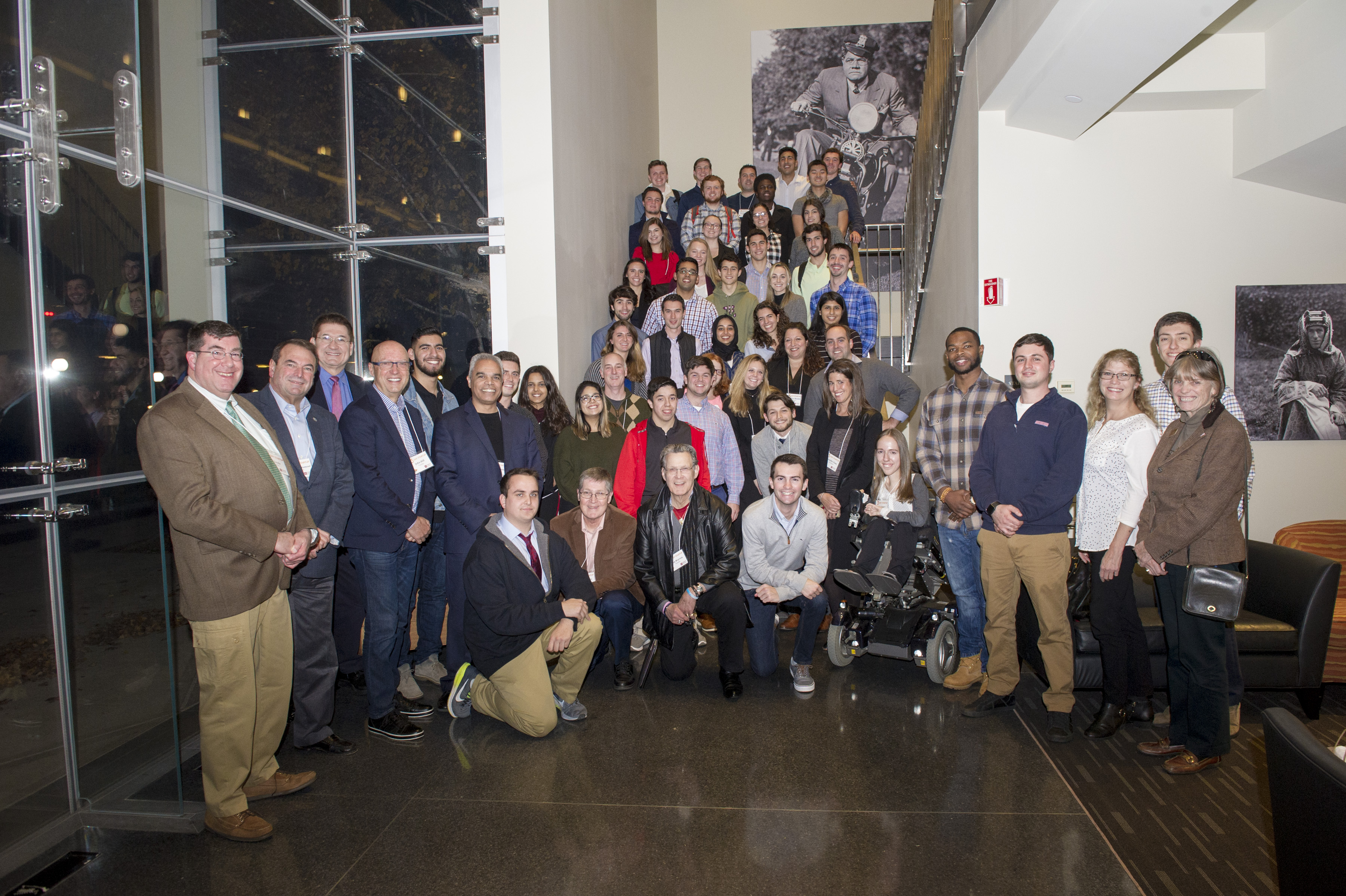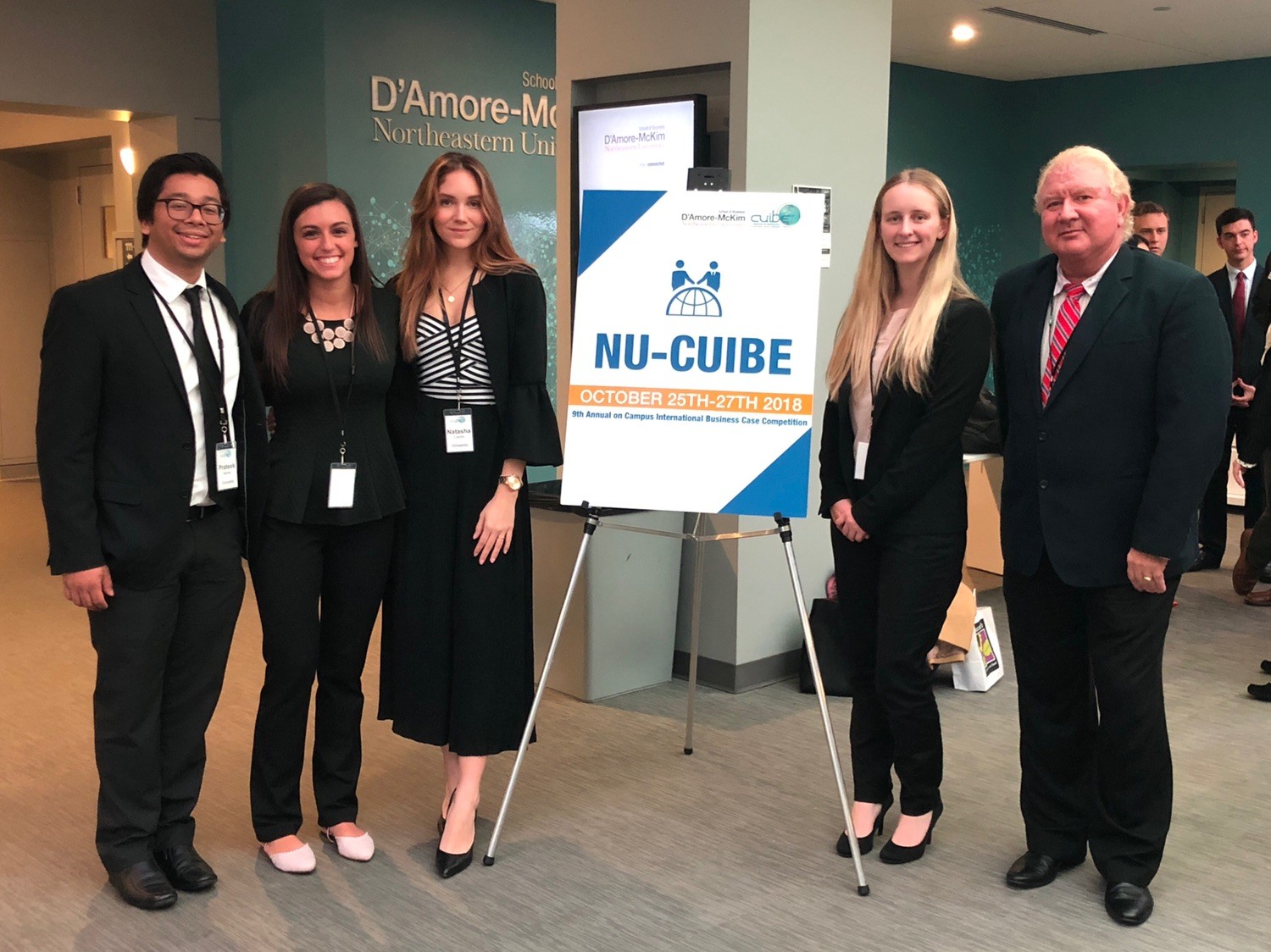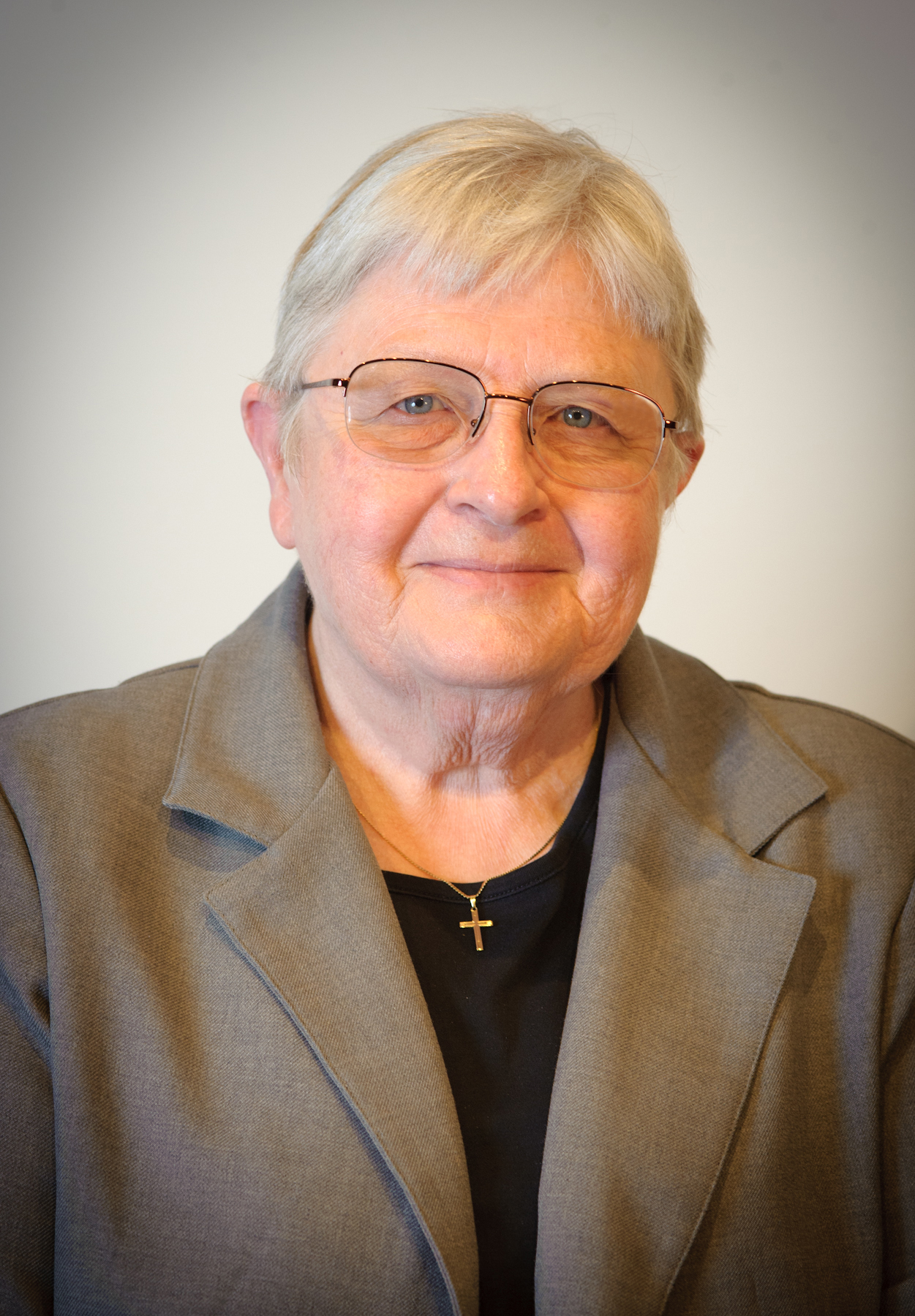-
About
First-Year Application Deadline
Don't miss your chance to apply to Marist and join the Red Fox Family!
• Early Decision II and Regular Decision: Sunday, Feb. 15About
-
Academics
First-Year Application Deadline
Don't miss your chance to apply to Marist and join the Red Fox Family!
• Early Decision II and Regular Decision: Sunday, Feb. 15Academics
-
Admission & Financial Aid
First-Year Application Deadline
Don't miss your chance to apply to Marist and join the Red Fox Family!
• Early Decision II and Regular Decision: Sunday, Feb. 15Admission & Financial Aid
-
Student Life
First-Year Application Deadline
Don't miss your chance to apply to Marist and join the Red Fox Family!
• Early Decision II and Regular Decision: Sunday, Feb. 15Student Life
- Athletics
A man working in front of the computer
School of Management
January 2019
SoM boosts entrepreneurship offerings
Last October, New York State’s education department approved the inclusion of Entrepreneurship as a new concentration/area of emphasis in Marist’s Bachelor of Science in Business program. The concentration joins Finance, Human Resource Management, International Business and Marketing as specialization areas that business majors can choose from. New courses in the focus area include Advanced Topics in Entrepreneurship, Entrepreneurial Finance, and Innovation Management and New Product Development.
Dovetailing with the new concentration was the School of Management’s first 3 Day Startup (3DS) event, which took place on campus over the weekend of Nov. 9-11. Established in 2008 at the University of Texas in Austin, this workshop offers hands-on experience in brainstorming and refining an idea for a start-up company, creating a business model, and pitching the idea to a panel of business experts.

Students from throughout the college — 40 in all — attended 3DS, said Director of Executive Programs Jay Pantaleo, who organized the event with Associate Professor of Management David Gavin.
From the pool of ideas for start-up companies, the students voted to focus on seven possibilities, ranging from an ethical hacking company (to identify and fix weaknesses in computer systems) to a hydraulic pivoting seat modification for wheelchairs. “Many of the ideas were socially conscious, which was nice,” Pantaleo said.
The students then formed groups to hone each idea; they received feedback from 10 mentors, a group that included faculty and members of the Dutchess County Regional Chamber of Commerce. After two days of fine-tuning, each group pitched its idea to a panel of six business leaders from the local area.
Pantaleo said student reaction to the program was very positive. “They just loved it. Many asked me when we’d be doing it again.” His personal reaction mirrored that of the students. “This is a voluntary program,” he said. “To get 40 students to dedicate an entire weekend to working on this, to me that’s a huge measure of success. There was no incentive other than the students’ passion for entrepreneurship. Having just started the entrepreneurship concentration, I think this shows we’re heading in the right direction.”
IN THE PHOTO: 3 Day Startup participants, mentors and panelists pose on the staircase of the Lowell Thomas building
Undergrads excel in international biz contests
Five SoM students — three seniors and two sophomores — represented Marist at a pair of international business case competitions last fall.

The competitions, organized under the auspices of the Consortium for Undergraduate International Business Education (CUIBE), took place at San Diego State University on Oct. 11-14 and at Northeastern University in Boston on Oct. 25-28. To prepare for these events, the Marist quintet underwent “vigorous practical training,” said Dr. Detelin Elenkov, affiliate professor of international business and the team's faculty adviser.
Team members Prateek Samal ’19, Madeleine Durand ’19, Natasha Cacho ’19 and Jana Brzovski ’21 faced off against 11 other colleges in San Diego; Samal, Durand, Cacho and Alexa Rine ’21 battled 17 schools in Boston. “During both competitions, the Marist student team demonstrated creativity, genuine understanding of business analysis techniques, and the ability to propose and effectively defend practical solutions to business tasks,” said Elenkov, who noted that the team’s marks surpassed those of both host colleges as well as Washington State University, which won the San Diego competition in 2017. Other participating institutions included American University, George Washington University, Temple and Villanova.
“The main benefit to the students was the opportunity to compare their knowledge and skills to those of students representing some of the top universities in the nation,” Elenkov said. “To be sure, the successful performance demonstrated by our teams has indicated to the prestigious CUIBE community that international business education has been given a high priority at Marist College.”
IN THE PHOTO: Prateek Samal ’19, Alexa Rine ’21, Natasha Cacho ’19, Madeleine Durand ’19, Prof. Detelin Elenkov. Missing from the photo is team member Jana Brzovski ’21
By the Numbers: Students visit Financial Accounting Standards Board HQ
Twenty SoM students traveled to Connecticut on Nov. 7 to attend a meeting of the Financial Accounting Standards Board (FASB) in its Norwalk headquarters. Sponsored by the Marist chapter of Beta Alpha Psi and the School of Management, the trip has become an annual event over the last few years, offering attendees the chance to see how this not-for-profit organization makes decisions on financial accounting and reporting standards for public and private companies.

During the meeting, “the board voted on three agenda items,” said J. Donald Warren, Jr., professor of accounting and BAP faculty adviser. “Subsequent presentations were made by the staff of the FASB and the Governmental Accounting Standards Board, as well as by one of the current postgraduate technical assistants. Marist alumna Lisa Valentini-Ghosh ’95 concluded the visit by offering the students career advice.”
“The meeting focused on Topic 326, financial instruments-credit losses implementation and its related issues on recoveries, negative allowances, vintage disclosures, and contractual extensions,” said Tennille Savage ’19. “It was very interesting to hear the staff’s presentation of the issues surrounding Topic 326 and the related proposals to address those issues. Also, attending a board meeting and listening to the discussion of the issues by both the board members and staff provided me with a better understanding of the process by which board members vote and approve agenda items under consideration. I was drawn into the discussion; it was my moment of learning.”
IN THE PHOTO: Prof. J. Donald Warren, Jr. and Lisa Valentini-Ghosh ’95 (second row on left) with students at the Financial Accounting Standards Board in Connecticut
Praise from the press
Marist College, and the School of Management in particular, continue to garner headlines for the quality of their academic programs.
Last fall, U.S. News and World Report released its “Best Colleges” ratings for 2019. Marist ranked eighth on the “Best Regional University-North” list — its highest ranking to date. The college was also singled out on the North region’s lists of “Most Innovative,” “Best College for Veterans,” Best Undergraduate Teaching” and “Best Value Schools.”
The School of Management was lauded for its online graduate programs. Of the 1,200 programs rated by the site, Marist tied for 60st in the “Best Online Graduate Business Programs (Excluding MBA)” and was 58th in the “Best Online MBA Programs” categories.
Additionally, the website AccountingEdu.org — an online clearinghouse for accounting and finance students and professionals — named the SoM’s Master of Science in Professional Accountancy program one of the best accounting programs in the nation. In its description, the site notes “this accelerated course of study is one of the fastest in the nation, taking you from the classroom to the accounting field in just seven months.”
Faculty Focus
Associate Professor of Economics Ann Davis is the coauthor of Property Rights in Contemporary Governance, which will be published next month by SUNY Press. The book examines the many meanings of property, how they have changed over time, and the roles they play in policy, society, and law.
“What You Should Never Say in a Coworking Space” is SoM Professor of Strategy Helen Rothberg’s latest article published on the time.com website.

The December 6 piece lists eight verbal faux pas — including “Can I hang out in your office?” and “Isn’t that guy on the third floor a jerk?” — and offers less-risky conversation starters for use in shared workspace environments.
Last semester, Associate Professor of Finance Brian Haughey hosted a presentation on careers given by Marist alumni Mike Babic ’04, a vice president at Goldman Sachs; and Andrew Senno ’06, an executive director at J.P. Morgan. In addition, Andrew Crowell, vice chairman of wealth management at D.A. Davidson in California — and parent of student Thomas Crowell ’19 — lunched with Haughey’s students during a campus visit on Oct. 28.
In 2018, Visiting Professor of Management John Cary spent part of his summer conducting research in Italy on the practice of tipping. Cary surveyed restaurant owners, wait staff and patrons of Italian restaurants to learn about the financial and social aspects of tipping compared to those in the U.S. Among his findings: “The tip amount had less of a ‘motivation’ for the staff. They generally receive greater benefits and are less of a ‘temporary worker’ as might be seen in the U.S.”
The Research Seminar Series welcomed Ivan Manev on Dec. 5. The Nicolas M. Salgo Professor at the University of Maine Business School, Dr. Manev “discussed ongoing research that he and Prof. [Detelin] Elenkov have been conducting in Russia concerning the impact of subcultural differences on employee values and corporate culture — perhaps impacting plans for corporate plant locations in Russia,” said Prof. Thomas Madden, assistant professor of business law and series organizer.
Getting to know… Professor Rena Hill
No matter how you slice it, Rena Hill is one busy lady. A professional lecturer in management, she taught more than 300 students last semester. Dubbed “the director of Business 100” by Dean Lawrence Singleton, she co-teaches — with eight adjunct instructors — all of the students who take this Introduction to Business course, which is a requirement for business majors. “I also had one section of Organizational Behavior — that was 24 students,” Hill said, “and I supported [Associate Dean for Undergraduate Programs and Professor of Management] Joanne Gavin with her two Career Management classes.” Not included in this tally are the 105 students Hill counsels as a member of the SoM’s Academic Advising Center.

Before coming to Marist as an instructor/adviser in 2007, Hill worked as the executive director of the Girl Scouts of Ulster County for nine years; from 1990-98, she was the president of the Dutchess County Girl Scout Council. During that time, she earned her associate’s degree at Dutchess Community College and went on to complete her B.A. at Marist in 1998. Her MBA from the college was awarded in 2004. “I did it the hard way, one course a semester,” she said of her educational journey. “It took me 20 years to get all the way through.”
Hill uses her past employment experiences — both good and bad — as teaching tools in the classroom. “I explore stories [with students] that really happened to me,” she said. “I can share information based on experiences: I was bullied at a job, and sexually harassed at a job. I caught my best friend embezzling from the bank where we were both working. I can talk about how [these situations] were managed and how I dealt with them.”
As an adviser, she sees her role as “getting the freshmen started on their road to success. We help them map out a plan that will get them to graduation on time. There are, however, twists and turns along the way — and we’re here to support the student when that happens.”
Interacting with undergraduates is the best part of her two jobs. “I enjoy working with the students, whether it’s advising or teaching,” she says. “I enjoy being able to add validation to the written words in the textbook. As advisers, we’re a sounding board sometimes; being able to find ways to help students is satisfying to me.”
She also is grateful for her coworkers. “The whole staff — my peers in teaching, the administrative staff, the registrar, CAAS — they support me, and I try to support them back.”
At the end of each semester, Hill always offers a few words of advice to her students. “I encourage them to take on jobs that they love. Spending 40 or 50 years at a job you don’t like is not fun. Be happy and healthy and proud of what you do.”
